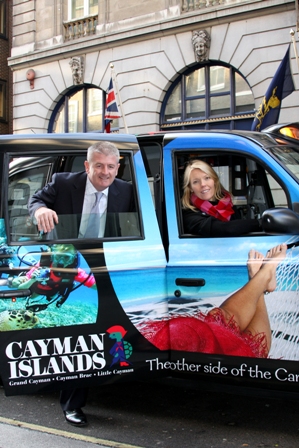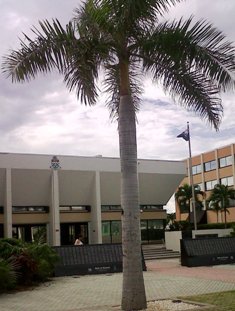Archive for November, 2010

Switzerland eyes benefits from Ireland’s troubles
(Swiss info): With Ireland coming under increasing pressure to raise corporate taxes, Swiss cantons are eyeing the opportunity of seizing a greater share of company relocations. The debt-stricken republic has rejected calls from France and Germany to increase company income tax in return for a European Union bail-out, but some believe the former Celtic Tiger may have lost too many teeth to resist. Ireland’s current economic woes spring from the dramatic collapse of its housing market since 2008, landing its banks with bad debt. A government bank bail-out left holes in national accounts and the country in need of an emergency cash injection.

Hit and run driver gave himself up
 (CNS): A 27-year-old kitchen assistant has been charged with causing death by dangerous driving and leaving the scene of an accident after giving himself up to the authorities. Mario Peter Pereira, an Indian national from Goa, is charged with hitting and killing 52-year-old Winston Welsh on Crewe Road on 12 November as he tried to cross the road to the Mango Tree Restaurant. The defendant, who had been in custody, was granted bail at $5000 to appear again on 16 December when an inquiry will be held to establish the facts of the case. The defendant was told to surrender his passport, as he could not now leave the jurisdiction until the case was heard, and that he must reside at his George Town home.
(CNS): A 27-year-old kitchen assistant has been charged with causing death by dangerous driving and leaving the scene of an accident after giving himself up to the authorities. Mario Peter Pereira, an Indian national from Goa, is charged with hitting and killing 52-year-old Winston Welsh on Crewe Road on 12 November as he tried to cross the road to the Mango Tree Restaurant. The defendant, who had been in custody, was granted bail at $5000 to appear again on 16 December when an inquiry will be held to establish the facts of the case. The defendant was told to surrender his passport, as he could not now leave the jurisdiction until the case was heard, and that he must reside at his George Town home.
During his first court appearance on Monday afternoon it was revealed that Pereira had surrendered to the police a few days after the incident and admittedthat he had hit the victim, fled the scene, altered the car and hid the vehicle before he decided to give himself up. His defence attorney said it would be established that this really was a tragic accident on a very dark road with no aggravating circumstances such as speed or drink.
The defence attorney said Pereira was well thought of and his employers were holding his job for him, which he would return to once on bail. The crown had no objection to bail being granted provided the conditions were imposed.

Tourism faces major cuts
 (CNS): The Department of Tourism is set to lose much of its current functions to various other government departments as part of the civil service efficiency drive. According to the recent reportby the civil service review team, some $3.5m from the DoT budget of almost $27m can be saved by policy changes, downsizing and transferring or outsourcing responsibilities to other agencies. The team also called for an end to Jazz Fest and other promotions that the DoT manages, saying it should contribute no more than 25% to host the various other events throughout the year. The team said DoT does several things outside the stated strategic focus of tourism and needed to refocus on promoting the islands.
(CNS): The Department of Tourism is set to lose much of its current functions to various other government departments as part of the civil service efficiency drive. According to the recent reportby the civil service review team, some $3.5m from the DoT budget of almost $27m can be saved by policy changes, downsizing and transferring or outsourcing responsibilities to other agencies. The team also called for an end to Jazz Fest and other promotions that the DoT manages, saying it should contribute no more than 25% to host the various other events throughout the year. The team said DoT does several things outside the stated strategic focus of tourism and needed to refocus on promoting the islands.
“Over the years, DOT has accumulated ancillary functions, the cumulative effect of which detracts from the core focus of the department,” the civil service review team said in its recent report, adding that non-core activities should be transferred or outsourced to allow it to focus on its main mission.
The review team said the administration of tourism scholarships should be transferred to the Education Council, and training to the education ministry or privatised. It said the analysis of tourism statistical data could go to Economics and Statistics Office, money collection to treasury and accommodation inspections could be done by Department of Environmental Health. It also said the department needed to cut overseas staff.
“A review of DoT expenditure and budget showed that over 60% of overseas staff time is spent on promotional activities, meaning that the government has hired overseas staff primarily to attend promotional activities at … a cost of up to $7.9 million … The review team questions the justification for spending 31% of the department’s entire budget on promotional activities,” the report stated.
The team revealed a lack of performance indicators to justify that level of expenditure. Signalling the death knell for Jazz Fest, the review team said it was concerned that the return on investment of managing tourism events is not clearly established or well monitored. “An example is the Jazz Festival, the net cost of which was $1.0 million in 2009. It was not clear what contribution the Jazz Festival made to tourist visitation figures. Also, some industry stakeholders questioned the timing of the Jazz Festival and believed that the timing is not in the best interest of the economy.”
As well as the restructuring of the US office, which is already underway, the review team proposed a restructuring of all the DoT offices, including Grand Cayman.
“The Review Team is concerned that staffing levels are excessive, outdated and are not cost effective,” the report said. “DoT employs more than 35% of its local and overseas staff in marketing roles. In addition DoT has outsourced $9.0 million of marketing expenditure. The Review Team is concerned that the true productivity gains from outsourcing through a re-alignment of staffing have not been achieved.”
It said the cost of the UK office of $2.3 million cannot be justified in terms of the passengers coming from Britain. “There is significant potential to reduce the current spend of $1.2 million on advertising and $600k on other promotional activities.”
The team recommended redirecting some of the spending to the Canadian office, which it said has the potential to increase tourist arrivals as Canada has a direct air link. The Review Team was advised that air arrivals from Canada could be doubled with input of more resources.
HR staffing levels in the department were also seen as “far in excess of the standard benchmark” for other government departments and recommended the redeployment of at least two people from human resources.
The team recommended placing more emphasis on web management, which it said was critical for the success of tourism. It said the current website and its functionality is outdated in comparison with other jurisdictions. “A review of DoT‟s internet strategy, management and resourcing is urgently needed. The Review Team believes that some of the savings identified elsewhere in this review should be redirected to upgrading the website and to developing a comprehensive E-strategy.”
Although the DoT management agreed with some of the recommendations it questioned whether tourism training could be outsourced to the private sector noting that, had this been a viable business proposition, a vocational institute specialising in tourism would have already been developed. The department also raised concerns about others inspecting tourism premises as it said DoT officers have the requisite knowledge of the laws and regulations and industry. “It is highly questionable whether another government agency would be able to effectively represent the government’s interest,” the DoT said.
Tourism managers also disagreed with the recommendation to pass on the analysis of tourism date to the ESO. “The department’s data collection, research and surveys is an ongoing and integral part of our activities so that informed business decisions can be made for effecting tourism strategies,” the DoT said.

Short window opens for permission to sell booze
 (CNS): For a short time only, local businesses, with the exception of gas stations, will be able to apply for new package and retail licenses until 16 January next year. The two month window of opportunity started last week and will enable restaurants and other appropriate business to add a liquor license. It will also facilitate the opportunity for new bars, restaurants and liquor stores to open new license premises without transferring a license from somewhere else. The window of opportunity comes as a result of a change in the regulations in Cabinet last week.
(CNS): For a short time only, local businesses, with the exception of gas stations, will be able to apply for new package and retail licenses until 16 January next year. The two month window of opportunity started last week and will enable restaurants and other appropriate business to add a liquor license. It will also facilitate the opportunity for new bars, restaurants and liquor stores to open new license premises without transferring a license from somewhere else. The window of opportunity comes as a result of a change in the regulations in Cabinet last week.
As a result of the moratorium which controls the number of licenses allowed on the island, those who have a license who no longer wish to operate a restaurant, bar or liquor store have sold licenses on at a premium. From time to time government lifts the moratorium to re balance the numbers or facilitate license for new developments and attractions.
During his time in office the former tourism minister Charles Clifford had said the moratorium needed to be lifted and new licensing laws developed to better manage the situation, as he said the existing law encouraged a black market in which licences have been known to sell privately for as much as $200,000.

Gun runner’s yard was scene of West Bay shooting
 (CNS): A man who pleaded guilty to the importation of three firearms says he bought the guns to protect himself as a result of a shooting which took place in his West Bay yard in 2009. Joseph Hurlston, who admitted guilt part way through a trial for the offence, said he went to Jamaica earlier this year and bought three handguns, for which he paid $3,000. Hurlston had returned to the Cayman Islands with the unlicensed weapons in a canoe but on nearing the reef in East End the boat had capsized. Hurlston was apprehended by police soon after coming ashore with just one of the weapons, which was loaded. The court heard that Hurlston’s home in Bonaventure Road was the location of the murder of Marcus Ebanks back in May 2009.
(CNS): A man who pleaded guilty to the importation of three firearms says he bought the guns to protect himself as a result of a shooting which took place in his West Bay yard in 2009. Joseph Hurlston, who admitted guilt part way through a trial for the offence, said he went to Jamaica earlier this year and bought three handguns, for which he paid $3,000. Hurlston had returned to the Cayman Islands with the unlicensed weapons in a canoe but on nearing the reef in East End the boat had capsized. Hurlston was apprehended by police soon after coming ashore with just one of the weapons, which was loaded. The court heard that Hurlston’s home in Bonaventure Road was the location of the murder of Marcus Ebanks back in May 2009.
In the same incident Adryan Powell, who was 14 at the time, wasalso shot and is now confined to a wheelchair, and Ebanks’ younger brother was also injured when two masked men allegedly opened fire on a group of youngsters hanging around Hurlston’s yard. It was not until late May of this year that Raziel Jeffers was charged with the murder and is now awaiting trial. So far, police have made no charges in connection with the second shooter.
The court heard on Friday afternoon that Hurlston, who had no previous offences for violent crime, was a witness in this murder case. Hurlston’s only previous dealings with the court until this gang related shooting had been over possession and cultivation of ganja.
The 28-year-old West Bay man now faces a minimum sentence of seven years in jail as a result of the guilty plea, but which could be higher. The crown argued that while a guilty plea lowers the statutory minimum for firearms cases from ten years to seven, because Hurlston was so late with his plea he should not be given the discount.
John Masterson, acting for the crown, said Hurlston’s plea had come very late in the day and only once he knew for certain that all of the evidence against him would be admitted. “This was a tactical plea,” Masterson told thecourt. “He only entered his plea after highly incriminating evidence was read to the court.” Masterson stated that Hurlston had put the crown to prove the case, had not saved the court any time as all the witnesses had been called, and despite knowing he was guilty he did not admit his crime until the last possible moment. “The defendant always knows whether he is guilty,” Masterson noted, suggesting that the discount on sentencing is there to encourage people to admit to guilt as soon as possible.
Defence counsel representing Hurlston told the court that there was no qualification in the law that a guilty plea had to come at a specific time to earn the three year discount and that the judge should work from a seven year minimum sentence. Lucy Organ pointed out that, as his defence attorney, she could not advise her client to plead guilty to an offence until she knew that the firearm could be defined as a weapon and that there was proof that a crime had occurred.
She said the guns were bought, albeit misguidedly, through fear as a result of the May 2008 murder in his year and that there was no evidence to suggest Hurlston intended to use them in pursuit of a crime. With no previous convictions for violence and certainly no previous connections with firearms, but with no authorities in the jurisdiction to consider, Organ asked the judge to use his discretion when sentencing her client.
Justice Smith said he would hand down his sentence on Friday 26 November.
Mosquito boss says GM project is safe
(CNS): The release of genetically modified mosquitoes in Grand Cayman poses no threat to people, says the director of the MRCU. A project that is seeking to suppress the stinging dengue carrying pest using male insects which have been genetically altered to be infertile has reduced the mosquito population without using chemicals. The trial has attracted considerable attention because the details of the release seemed to have stayed under the radar. Government did produce a short documentary segment about the project in which the MRCU partnered with the UK firm Oxitec Limited but little information has been circulated in the public domain. Dr Bill Petrie has said people have noting to fear from the trial.
“The males that we release don’t live very long,” he explained to Cayman 27 on Friday. “They don’t persist in the environment so the trans-gene that they possess doesn’t persist in the environment.”
The “mutant mozzies”, as they have been dubbed in some quarters, have attracted worldwide attention and were the first of their kind to ever be released into the wild. Three million of the sterile male mosquitoes, which cannot bite, were released into the local population on the eastern end of the island to mate with females, preventing them from reproducing.
Between May and October scientists released batches of the mosquitoes in cages three times a week in a 16-hectare area. By August, mosquito numbers had fallen by 80 percent, compared with a neighbouring area where no sterile male mosquitoes were released.
In a segment for GIS earlier this year Petrie explained the project was about fighting dengue, for which there is no vaccine or cure and it is on the increase. The mosquito aedes aegyptti associated with the virus populates Grand Cayman but does not carry dengue here. As this mosquito tends to congregate around populated areas scientists are trying to find non-chemical ways of dealing with the dangerous pest. “Any tool we can use against this mosquito would be useful,” he said.
Angela Harris of the MRCU said the technology had gone through years of development in the laboratory and Cayman was at the cutting edge of science by being the first place to test the genetically modified mosquitoes, which should prevent females from reproducing. When females mate with the ‘mutant mozzies’ the resulting larvae always die before hatching.
With this first trial already revealing promising results reducing the levels of the aedes aegypti by an impressive 80 per cent, compared with the untreated site next door, the ‘mutant mozzie’ will now be released where the female mosquito is carrying dengue fever.
Oxitec, which is a spin-out company from Oxford University, is set to carry out five more similar trials around the world over thenext year. It had hoped to launch its first dengue fever field trial in Malaysia, but was held up by regulatory problems and criticism from some anti-GM campaigners. Oxitec now hopes the Malaysian trial will start later this month. The delay enabled the Cayman Islands, where aedes aegypti mosquitoes arrived in 2002, to get in first.
Oxitec insists that its GM mosquitoes are environmentally benign and represent the only hope of rolling back the global advance of dengue-infected mosquitoes. Aedes aegypti are an alien species spread by human activity so their eradication would not disrupt local ecosystems.

Murderers in court of appeal
 (CNS): The two men convicted of murdering local activist Estella Scott-Roberts will return to the courtroom Monday morning. The Cayman Islands Court of Appeal is set to hear from lawyers representing Kirkland Henry and Larry Ricketts why they believe the convictions should be quashed. The grounds of appeal have not yet been revealed for the two men, whose cases will be heard separately. Both men were found guilty of the murder of the Cable & Wireless executive after a judge alone trial before the chief justice in February. Henry had pleaded guilty to kidnapping, robbery and rape but not guilty to murder, accusing his co-defendant Ricketts of the killing. Ricketts pleaded not guilty to all charges, insisting he was not there on 11 October 2008 when Scott-Roberts was murdered.
(CNS): The two men convicted of murdering local activist Estella Scott-Roberts will return to the courtroom Monday morning. The Cayman Islands Court of Appeal is set to hear from lawyers representing Kirkland Henry and Larry Ricketts why they believe the convictions should be quashed. The grounds of appeal have not yet been revealed for the two men, whose cases will be heard separately. Both men were found guilty of the murder of the Cable & Wireless executive after a judge alone trial before the chief justice in February. Henry had pleaded guilty to kidnapping, robbery and rape but not guilty to murder, accusing his co-defendant Ricketts of the killing. Ricketts pleaded not guilty to all charges, insisting he was not there on 11 October 2008 when Scott-Roberts was murdered.
Ricketts had, however, made a confession to the police soon after his arrest and the chief justice said in his verdict that he was no doubt that Ricketts’ confession had been made freely and had not been concocted by the police as Ricketts had claimed when he took the stand. The judge also rejected Henry’s claim that while he was at the scene of the crime he had not participated in the murder and had told Ricketts he wanted no part in killing their victim. “I do not accept he made any attempt to withdraw from the criminal enterprise,” the chief justice stated before he indicated he was satisfied that Henry was also guilty of murder.
The badly burned body of Estella Scoot-Roberts was discovered in her own burnt out car in the Barkers area of West Bay on Saturday, 11 October 2008. She was last seen alive on the night before, when shehad dinner with friends at Deckers restaurant on the West Bay Road. The two men had abducted her from the parking lot at around 1pm that night.
Both men, who are Jamaican nationals, are serving life sentences at HMP Northward. At the time of their arrest in 2008 the men were living in George Town, where Ricketts worked as a carpenter and Henry a gardener.
Although both men were tried for the murder and Henry pleaded guilty to three other charges, Ricketts is still listed to face trial for abduction and robbery. This case was set for October but the trial was postponed until after the appeal.
Alongside his life sentence, Henry also received 20 years for rape, 15 years for abduction and 13 years for robbery and he is also appealing those sentences.

Kids asked to depict human rights through lens
 (CNS): With Human Rights Day celebrations only a few weeks away young people aged between 8 and17 years have the chance to compete in a photo competition depicting human rights. The CI – See You competition is inviting original images taken in the Cayman Islands by young people which will be judged in three age groups: eight to 11 years, 12 to 14 years, and 15 to 17 years. The photos will be judged on creativity, and how well they show the messages of human rights, freedom and social responsibility. All children’s human rights include their right to freedom, family, religion, education, nutrition and health. There will be an overall best photo winner, as well as two honourable mentions in each age group.
(CNS): With Human Rights Day celebrations only a few weeks away young people aged between 8 and17 years have the chance to compete in a photo competition depicting human rights. The CI – See You competition is inviting original images taken in the Cayman Islands by young people which will be judged in three age groups: eight to 11 years, 12 to 14 years, and 15 to 17 years. The photos will be judged on creativity, and how well they show the messages of human rights, freedom and social responsibility. All children’s human rights include their right to freedom, family, religion, education, nutrition and health. There will be an overall best photo winner, as well as two honourable mentions in each age group.
Only one entry per competitor is allowed and the prizes will be awarded on Friday, 10 December at the Human Rights Music and Arts Show at Camana Bay. Each overall best photo winner will receive a $50 gift certificate, and each honourable mention will receive a $25 gift certificate. The photographs will also be published in local media and displayed at locations throughout Cayman, as well as posted on the Human Rights Commission website.
The deadline for photo submissions is Friday, 3 December. Winners will be notified on Wednesday, 8 December. Each submission must include the photographer’s name, age, e-mail address and phone number, as well as the photo title, and a description of the subject area (such as human rights, freedoms or responsibilities). The digital photographs should be between 2MB and 3MB in size.
Photos can be submitted in three ways: e-mail them to debbie.bodden@gov.ky;
mail them to the Human Rights Commission, c/o Commissions Secretariat, P.O. Box 391, Grand Cayman KY1-1106; or
deliver them to the Human Rights Commission, c/o Commissions Secretariat, Smith Road Centre, 2nd Floor, George Town, Grand Cayman.
For more information contact Debbie Bodden on debbie.bodden@gov.ky or 244-3685.

Government bean counters review standards
 (CNS): As government accountants struggle to put together up-to-date management accounts that tell the people exactly how public money is being spent, 75 number crunchers from core government, statutory authorities and government companies attended a five-day intensive workshop recently. According to a release from government information services (GIS) the goal was to help government’s accountants and auditors better grasp new standards in financial management and reporting. Organised by the Civil Service College, the auditor general and accountant general, the workshop also raised a number of questions on how standards designed for large corporations applied to CIG operations.
(CNS): As government accountants struggle to put together up-to-date management accounts that tell the people exactly how public money is being spent, 75 number crunchers from core government, statutory authorities and government companies attended a five-day intensive workshop recently. According to a release from government information services (GIS) the goal was to help government’s accountants and auditors better grasp new standards in financial management and reporting. Organised by the Civil Service College, the auditor general and accountant general, the workshop also raised a number of questions on how standards designed for large corporations applied to CIG operations.
With accountants attending from key departments, such as the budget unit, treasury and the audit office, Audit Manager Martin Ruben from the AG’s office said government accountants in Cayman had to become familiar with the new international standards and their implications.
“Financial managers should understand, for instance, the way a school is financed and how this is to be reported under international accounting standards in order to provide good advice on the impact on government’s finances,” he noted. The workshop provided a timely opportunity to discuss common issues and the need for common practices, as well as to network, he added.
Workshop facilitator from the Wales Audit Office, Iolo Llewellyn, lauded government’s foresight in adopting international financial reporting and public sector accountancy standards – years ahead of the United Kingdom. However, while the standards may have been adopted the public has not yet seen them in action as government has not produce an audited annual financial report since 2004.
The workshop reportedly generated debate about applying the extensive standards developed primarily for large public corporations, as compared to government operations in the Cayman Islands, the Welsh Office representative said.
Senior Assistant Financial Secretary Anne Owens summed up the workshop’s usefulness when she described it as “very informative”, but said a lot of work was needed, as a group, “to apply the standards consistently.”
Government is currently in the process of attempting to address the ongoing backlog of incomplete public accounts, and money was allocated in the last budget to pay for external accounting support to get the government books up to date. The 30 September deadline set by the Legislative Assembly’s Public Accounts Committee has come and gone but the auditor general says he intends to publish an annual report in December revealing the current state of all government accounts.
Last month the AG admitted that, despite enormous pressure as well as the extra funding and personnel to get the 209/10 government accounts into the auditor general’s office by the statutory deadline of 31 August, more than half the chief financial officers in ministries and other government entities failed to make the deadline.

Corporate charter boosts Brac tourism
 (CNS): A Texas based corporation chose Cayman Brac this week as a destination to reward employees and their families with a short vacation break. The 79 visitors came to the Brac for their five day getaway via a Continental Airlines 737-700 charter flight direct from Houston which touched down at Gerrard-Smith International Airport on Cayman Brac on Wednesday 17 November Clint Davis, of Mesa Engineering and the group leader said Cayman Brac was an obvious choice for the firm because it was extremely accessible from Houston.
(CNS): A Texas based corporation chose Cayman Brac this week as a destination to reward employees and their families with a short vacation break. The 79 visitors came to the Brac for their five day getaway via a Continental Airlines 737-700 charter flight direct from Houston which touched down at Gerrard-Smith International Airport on Cayman Brac on Wednesday 17 November Clint Davis, of Mesa Engineering and the group leader said Cayman Brac was an obvious choice for the firm because it was extremely accessible from Houston.
“This trip was organized as a reward for my employees for the successful completion of a project at Mesa Engineering in Houston, Texas. The group comprises approximately 20 employees and their families as well as family members of those employees who could not join us as they are on assignment in other locations,” the company boss said.
During their stay the guests enjoyed island tours, fishing trips and rock climbing as well as some star gazing and bird watching. “We have an astronomer in the group and the bird watchers are having a great time with another member of our group, an Ornithologist from the University of Oklahoma, who has thus far documented 35 species of birds,” Davis added.
“The Brac is absolutely beautifuland the services on Island and at the Brac Reef Beach Resort are five-star. I would definitely recommend the island to other groups.”
Mesa Engineering has been in the engineering research and product development business for the past 35 years and its designs have been used in the systems for three space stations, as well as a host of other industries including the aero space, energy and medical fields.
Jeremy Jackson, CEO of the Cayman Islands Airports Authority, who was at the terminal for the arrival of the charter flight, said that he was extremely pleased to learn that Cayman Brac had been chosen by the group. “The Airports Authority and its team at Gerrard-Smith look forward to working with other airlines that are considering the Brac as a possible destination as it will continue to boost tourism for the Island which ultimately benefits the local economy,” he said.
“We would like to thank Mr. Phillip Ebanks, the station manager for Continental Airlines on Grand Cayman for travelling to the Brac to assist as necessary with the processing of their flight. We are also grateful to the Cayman Airways team who served as ground handlers and processed luggage and other aircraft requirements,” he remarked.
The Mesa Engineering group left Cayman Brac late on Sunday, 21 November on the return Continental Airlines charter flight.